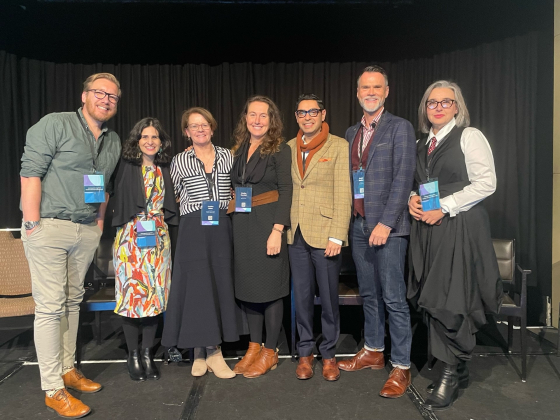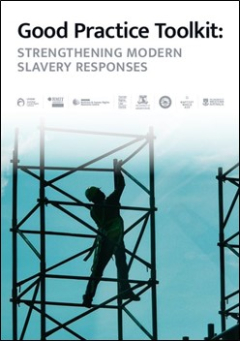The problem
The number of people trapped in modern slavery is increasing. It’s a global problem occurring in every region of the world, including Australia. During the 300 years of the transatlantic slave trade, approximately 12.5 million people were enslaved in the Americas. Today, more than 50 million people are estimated to be enslaved globally – that’s nearly one out of every 150 people in the world.
Tackling slavery has become harder. It can be commercially rewarding for businesses, it can be difficult to pinpoint the location or product component that is linked to a slavery practice, and slavery cannot be stopped simply by a law declaring that it is illegal.
In 2018, Australia attempted to address this by introducing the Modern Slavery Act, which requires large businesses to report on their risks of modern slavery annually. But the effectiveness of this law to combat modern slavery has been limited, and there are no incentives to properly report or undertake human rights due diligence.
The solution
The Australian Human Rights Institute wants to transform the way Australia does business. It has undertaken research, alongside a consortium of academics and non-government organisations, analysing company reporting and compliance under Australia’s Modern Slavery Act, as well as conducting an in-depth study using both surveys and focus groups of businesses to better understand their responses to modern slavery in Australia.
Led by internationally renowned modern slavery expert, Professor Justine Nolan, the project is improving understanding of modern slavery risks in global supply chains by identifying which sectors have a high risk of modern slavery, and how risk factors differ across sectors.
Research focuses on companies operating in four sectors with known risks of modern slavery: garments from China, rubber gloves from Malaysia, seafood from Thailand and fresh produce from Australia.
The Institute has developed tools, resources and guidance to businesses to help them better understand their responsibilities under the Modern Slavery Act, and built an evidence base that informs new business practices and sound policy responses by the Australian Government that include improving the Modern Slavery Act and other policy approaches.
Our impact
The project has already generated significant impact, with the independent review of Australia's Modern Slavery Act, released in May 2023, recommending almost all the changes advocated for by the Institute and its research collaborators in a series of research reports released in 2022 and 2023. This includes: requiring businesses to have a due diligence system in place; introducing penalties for entities that fail to submit a modern slavery statement or including false information; and introducing new reporting criteria that requires entities to report on modern slavery incidents identified annually.
The Institute called on the government to implement these recommendations and ensure that the newly announced establishment of an independent Anti-Slavery Commissioner be adequately resourced and mandated to provide effective oversight of the Act.
In May 2024, the Institute welcomed the Albanese Government’s establishment of Australia’s first national, independent Anti-Slavery Commissioner. Mr Chris Evans was appointed to this role in November 2024. The new Commissioner has a wide remit to help shape the implementation of future modern slavery reforms, including to the Modern Slavery Act 2018 (Cth). However, the Commissioner’s office currently only has a modest budget of $8 million over four years, substantially less than comparable roles such as the NSW Anti-Slavery Commissioner. The office also currently lacks explicit enforcement or investigation powers. The Institute has called on the Albanese Government to now increase funding and powers so that Commissioner Evans’ office can effectively tackle modern slavery in the supply chains of Australian companies.
Alongside three research reports, and with the support of a Department of Home Affairs grant, the Institute has published journal articles and government submissions; hosted public events and briefings for business leaders on its findings; and released a modern slavery reporting toolkit for businesses.
Media commentary on the Institute’s research in the past two years has been featured on ABC News’ RN Breakfast program, AlJazeera, The Australian Financial Review, CHOICE Magazine, Lawyers’ Weekly, SBS, Triple M and The Mandarin.
Professor Nolan serves on the Australian Government's inaugural Modern Slavery Expert Advisory Group.

